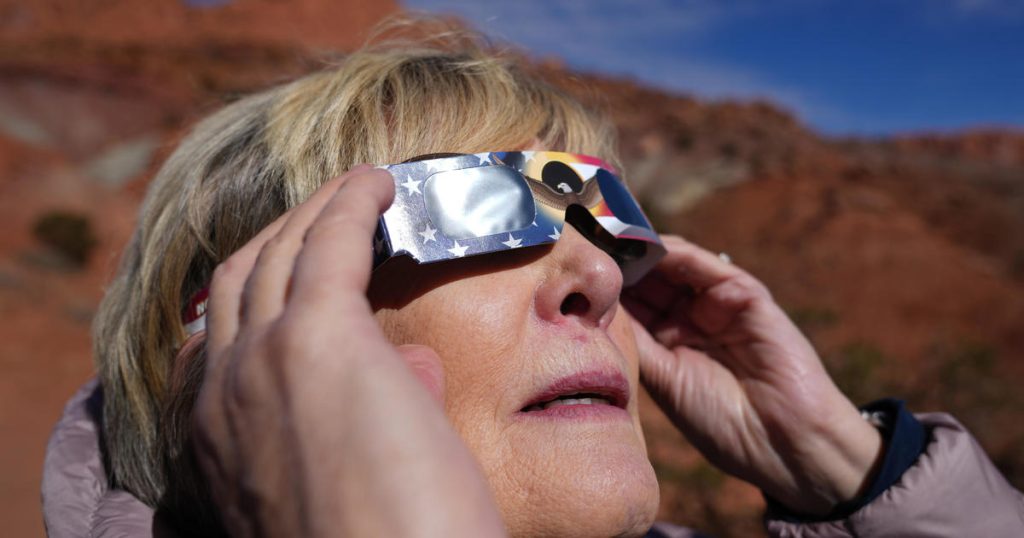The 2024 total solar eclipse is approaching, and it is crucial to have authentic and functional eclipse glasses to protect your eyes while viewing the phenomenon. It is important to ensure that the glasses you use are of the right quality and meet safety standards. The American Optometric Association advises against using sunglasses, smoked glass, unfiltered telescopes, magnifiers, or polarized filters to view the eclipse. Only glasses that meet the international safety standard, ISO 12312-2, should be used to look at a partially eclipsed sun.
The ISO standard ensures that eclipse glasses reduce visible sunlight to a safe level, block ultraviolet and infrared radiation, and are reviewed every five years for continued safety. UV radiation can damage eye cells, while IR radiation can generate heat causing thermal damage. Real eclipse glasses should have the ISO 12312-2 label clearly displayed, which indicates that they block light and radiation. NASA suggests testing eclipse glasses by looking at a bright light through them to ensure that the light appears extremely dim or not at all if the glasses are legitimate.
To avoid buying fake eclipse glasses, it is important to purchase from reputable sources and avoid sellers on online marketplaces like Amazon or Temu, especially if prices seem too good to be true. The American Astronomical Society recommends buying from U.S.-based manufacturers to ensure authenticity. It is also essential to check older glasses for marks or scratches, as damaged glasses may not offer proper protection from the sun’s rays. Glasses that are more than three years old should not be used for viewing the upcoming eclipse.
If you do not have eclipse glasses, an indirect viewing method like a pinhole projector can be used to safely view the eclipse without looking directly at the sun. NASA recommends making a pinhole projector by using a hole punched in an index card to project an image of the sun onto a nearby surface. By keeping the sun at your back and viewing the projected image, you can safely observe the eclipse without risking damage to your eyes. It is important to avoid looking directly at the sun when using an indirect viewing method to protect your eyes.


